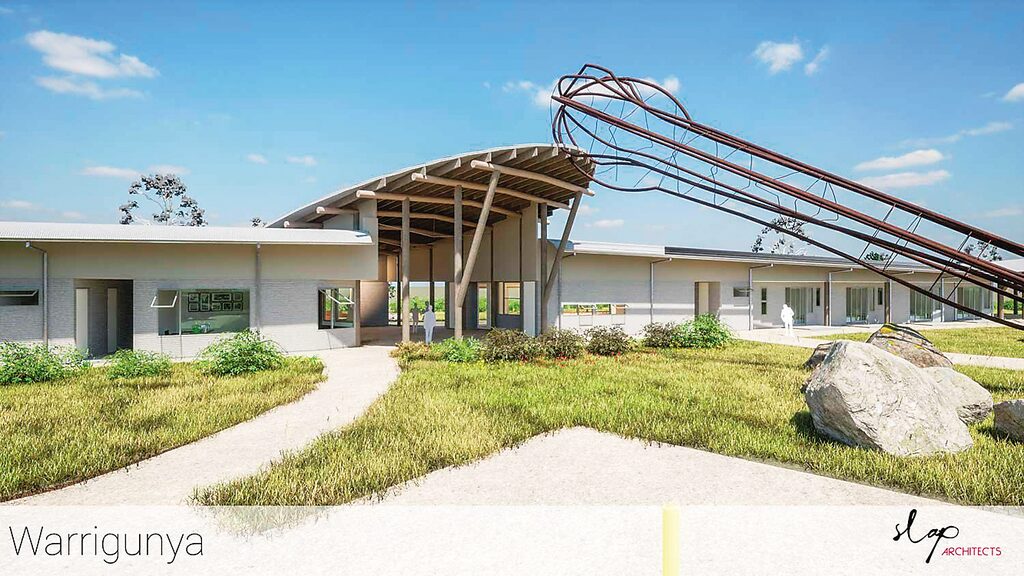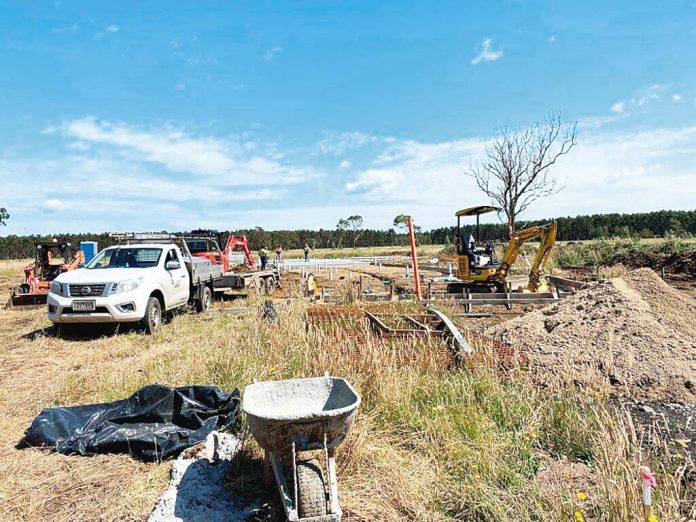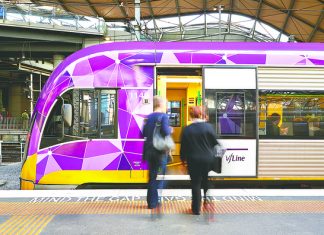PHILIP HOPKINS
By PHILIP HOPKINS
IN South Gippsland, the first steps have been taken in a traditional owner project that has the potential to help transform the lives of the region’s Aboriginal people and become a symbol of Indigenous culture. ‘Warrigunya’, it’s called. Run by a not-for-profit Indigenous corporation, it aims to provide safe and affordable housing for men exiting prison – a key need identified by Aboriginal people as a way for freed inmates to transition back to the community. Recidivism rates are high in the Indigenous community due to lack of housing, job and opportunities. Once basic needs are met, the concept is for the men to heal, reconnect with their families and culture, and learn skills to empower them to take a new path in life. The Aboriginal men in Fulham Correction Centre in Sale, who will use the Warrigunya centre, were consulted and made key decisions about the name of the project and the overall design of the building. Warrigunya is based on self-determination. A key director of the group is Uncle Alan Coe, who in 2019 received two significant awards: The Department of Justice and Community Safety’s Elder of the Year Award, and the Aboriginal Justice Committee’s East Gippsland Elder of the Year Award. “It is time we as a people have the opportunity to control our destiny without the constructs of misunderstanding and control,” he says. Over the past two years, local Aboriginal and non-Aboriginal volunteers have put in hundreds of hours, pro bono, on the project. One of those is Chris McEvoy, managing director of Radial Timber in Yarram. “The group was told that they could potentially get a grant for such a project, but they needed to get land. No grant allowed for the purchase of land,” he said. That’s where Mr McEvoy came in. As an owner of plantations that will eventually be the feedstock for his sawmill, he was able to split off 20 acres (eight hectares) from his estate for the site of Warrigunya. “Pre-COVID in 2019, we started looking. The first we came to was on the South Gippsland Highway at the corner of Gifford Rd, Darriman. Alan, the elder, as soon as we got there, noticed we had four emus just walk across and come together, kangaroos were jumping and a wedge-tailed eagle was over head. Mr McEvoy noted, he regarded those as a sign. “No, we won’t look at the other sites,” Uncle Alan said. “The environment is telling us this is where it needs to be.” “We had our land,” said Mr McEvoy, who gifted the property on a 50-year, peppercorn lease – $1 a year for 50 years. Also, the land chosen is at the headwaters of Warrigal River, the site of an infamous massacre in the 19th Century – “a terrible thing, the worst massacre of Aboriginal people in Gippsland”, he said. “All the people we have spoken to, traditional owners both involved in project and others, all feel that this is a part of the healing process.” With land in hand, the Warrigunya group was able to secure a $3 million grant from Homes Victoria, and achieve all the necessary permits and approvals, and a building contract. For the design, the traditional inmates of Fulham decided that the house should have the shape of the pelican Boran, which is the main totem of the GunaiKurnai people. There will be eight self-contained units housed under the wings of the pelican-shaped home. There will be enough space for 16 men, two per unit, or even singles, with a minimum of eight people. “The men can catch their breath, have housing for six to 12 months, start to reconnect with society and families and with their community, and hopefully help with employment and any mental health issues,” Mr McEvoy said. A workshop will be set up on site, with woodworking equipment, including woodwork training and areas where people, for example, can paint. “It has internal wood panelling. We hope to have renewables – solar panels – on the wings. All would love to have self-generating power,” Mr McEvoy said. Fast forward a year-and-a- half – after long delays with building and planning permits, COVID-19, price increases for materials and fire surveys – “the budget they gave was nowhere near sufficient”, Mr McEvoy said. Warrigunya is $1.5 million short to complete the project. “We finally started – the slab is down – but we only have enough money for one wing,” he said. “We’ve got a one-wing pelican at the moment. “It’s a bit of a slap in the face. “We’ve already spoken to the guys in jail, who almost see it as an insult.” As Uncle Alan Coe put it: “It’s like building a church without the stain glass windows or altar. Our needs and requirements as per our vision have not been met and this is very detrimental for the men we are seeking to help at Warrigunya”. A local builder is using an Indigenous crew doing the groundwork on the car park and the road-making; a crew of Aboriginal workers is doing the fencing. “The builder is trying to use as much Indigenous labour as we can for the project,” Mr McEvoy said. “This is not a white colonial project where everyone is making money, we’re trying to get local community involvement. Broadly, unless you get cultural leadership for the whole concept, it is not accepted otherwise.” Help has come from one ‘neighbour’ – the Star of the South windfarm project, which has donated money for works. An operational plan for Warrigunya has been prepared by an experienced Aboriginal project consultant. “We know how it will be run, but that part needs to be financed too. It’s too important a project not to be funded,” he said. As a 24-hour operation, it will require $1million a year to run. “The immediate need is to try and get the project finished under its original vision. In the middle of nowhere, a pelican surrounded by plantations, it will be quite a spectacular thing, something everyone can be proud of.” More information is available at www.warrigunya.com












